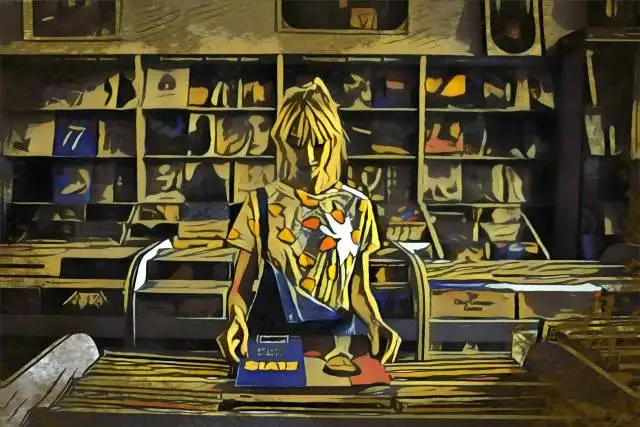Artists now live in an age where we can release music directly, irrespective of having a deal with major labels. This democratization of music distribution has empowered countless numbers of artists, but with great power comes great responsibility- it's important to understand the terms and conditions behind your distributor before putting out your release.
Below, we'll unpack exactly what a music distributor does and compare some of the top distribution companies so that you can select the right outlet for your needs.
What is Music Distribution?
Music distribution is the process of getting your recorded song onto streaming services like Spotify as well as social platforms and other outlets. A music distributor takes in your music assets like the master recording, lyrics, and cover art and delivers them to platforms on your set release date.
How does music distribution work?
Music distributors either take a subscription fee, upfront fee, or a portion of royalties from an artist's work in exchange for delivering music to all major platforms, potentially record stores based on the size of the artist and collect and distribute royalties back to the artist.
What is a distribution deal in the music industry?
Independent artists have more leverage than ever when it comes to distributing and marketing music. Instead of a traditional record deal, labels can now offer distribution to artists, typically in exchange for a portion of royalties, without requiring the artist to give up their masters. These deals vary on case by case basis, but they generally give artists more ownership than something like a 360 record deal.

Factors to Compare Across Music Distribution Companies
Here are a couple of factors to take into consideration while tracking down the ideal distribution service for your needs:
Pricing Model
As you'll note below, most distribution companies opt for a recurring yearly fee in exchange for their services. This means that you must keep the subscription (in most cases) for your music to remain live on streaming platforms. Some services may allow you to pay a one-time fee instead for distribution, but this typically comes with a cost to your royalty collection as well.
Collaboration Features and Royalty Splits
Some distribution services may charge more for splitting royalties across several parties or adding a collaborator to your release.
Customer Service
If you're new to digital distribution, you're bound to have questions while navigating this somewhat confusing process. Most distribution companies have a support line via email, though they can vary in terms of response times.
Marketing Tools
Some of the major distributors will include marketing tools like auto-generated pre-save links, for instance, to assist with the marketing of your music.
Top Music Distribution Services Compared
Without further ado, here are some of the top music distribution services compared for your convenience:
DistroKid
Most of my discography has been released through Distrokid, and I generally had little to no complaints. The platform makes it easy to upload music, set up a presave campaign via their "Hyperfollow" service, and even distribute music videos via their intuitive interface.
Distrokid can collect YouTube content ID, allows you to add collaborators at no extra cost, and provides several convenient payout options including PayPal. You can also distribute lyrics via Distrokid and receive IRSCs and UPCs with each release.
Cost: Distrokid plans range from $22.99 to $89.99 a year billed as an annual fee.
TuneCore
Artists can release music for free via TuneCore, but it comes at a cost of visibility and royalties. Free releases on TuneCore on the "New Artist" tier are only released to social media platforms, so you won't find your tracks on the likes of Spotify or Apple Music.
Paid plans deliver to all platforms including these services and TuneCore can collect YouTube royalties via content ID. TuneCore provides IRSC codes and provides the ability to add collaborators to your tracks and set pre-order dates for Apple Music.
Cost: Tunecore provides several different pricing tiers. Artists can release music without upfront costs in exchange for 20% of the track's royalties. Paid tiers, which revolve on a yearly subscription model, range from $19.99 to $49.99 annually.
Amuse
Amuse offers a free tier for budding artists where parties can release up to 12 songs per year in exchange for a cut of royalties. Paid Amuse plans can collect royalties via YouTube content ID and add collaborators and song splits at no additional cost. Amuse offers artists a presave page as well per release on both of the paid tiers of the service.
Cost: Amuse provides a free tier where artists can have up to 12 releases per year, in exchange for 15% of royalties. Paid plans range from $24.99 to $59.99 per year.
CD Baby
If you want to get your music on Spotify, Apple Music, and other digital service providers without worrying about a recurring subscription fee, CD Baby might be the right fit for you. You pay for each release separately upfront, with CD Baby collecting 9% of the royalties from every release.
CD Baby distributes to all major platforms and can even help you distribute physical media, like CDs and vinyl records. While they may not have a ton of in-house tools for marketing your music, they partner with several third-party services to provide you with discounts to run playlist campaigns, connect with fans, and more.
Cost: With CDBaby, you pay per release and sacrifice 9% of royalties on all projects, allowing your music to remain on platforms in perpetuity. Singles cost $9.99 and albums cost $49.98 to release.
United Masters
United Masters was started by an executive at Universal Music Group with a fairly simple pricing model. Artists can pay around $60 a year to release their music to all major platforms and collect royalties after meeting the payment threshold of $50. It's important to note that United Masters will not collect YouTube royalties on your behalf via YouTube content ID.
It's also worth noting that United Masters artists are also open to select sync or in-person opportunities provided by the company. Artists can submit their music to a ever-changing selection of sync deals via the United Master's portal.
Cost: United Masters costs $59.99 per year for basic plans, though they offer custom packages to their invite-only "Partner" tier.

What's the Difference Between Masters and Royalty Collection?
Understanding the difference between collecting streaming royalties and owning your masters is essential for any modern musician. Owning your master simply refers to having the rights to a particular recording of a song. Owning your publishing refers to having ownership over the lyrics, chords, and melody of a song: unless an artist's music is created in a total vacuum, publishing royalties are often split amongst songwriters and producers.
Every time a song is played out on streaming platforms, the master recording owner is owed a mechanical royalty. Artists also earn performance royalties, collected by a Performance Rights Organization or PRO like ASCAP or BMI. Note that these institutions are separate from music distribution companies and should be treated as such.
Music Distribution Service FAQs
Are you ready to send your music out to the masses? Check out these commonly asked questions and answers surrounding music distributors:
How do music distributors get paid?
Music distribution companies typically get paid for their services via a subscription fee, a cut of streaming royalties, or a combination of the revenue sources.
Do I need a distributor for my music?
Yes! You need either an independent distributor or distribution services via a record label to release your music to streaming platforms and otherwise.
How do I distribute my own music?
You can distribute your music by signing up for a distributor and uploading your tracks to be sent to streaming services. You'll either pay a regular subscription fee for the services or a cut of streaming royalties for the cost of business.
Who is the largest music distributor in the world?
The largest music distributor in the world depends heavily on a myriad of metrics. There is no one "right" answer, though each music distribution company more or less functions in a similar fashion.
In short, music distribution companies serve as the modern bridge between independent artists, record labels, and streaming platforms. Use this guide to track down the best music distributor for your needs so that you can disseminate your art across streaming services and potentially, physical distribution outlets. Enjoy the process of releasing music for friends, family, and fans!





